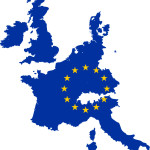The EU Action Plan on Deforestation
The year 2017 is poised to be a pivotal time in the EU’s efforts to address deforestation. As the European Commission (hereinafter, Commission) prepares to release its Action Plan on Deforestation, a recent June 2017 draft of a Feasibility Study on options to step up EU Action against Deforestation (hereinafter, the Draft Study) provides insights on the initiatives that it may take in order to control deforestation abroad. Domestically, recent conferences hosted by the EU also demonstrate the approach that the EU may take to address climate change within its Member States.
Unfortunately, there is evidence that the EU may once again take a unilateral approach to incentivising the production of sustainable goods, rather than the more prudent and practical approach of ensuring that any sustainability criteria that may affect the market access of sustainable goods be developed or reformed together with the EU’s trading partners, at the bilateral, regional and/or multilateral levels.
Recent forest-related conferences hosted by the EU
On 23 May 2017, the EU hosted a policy conference in Brussels, Belgium, titled “Beyond Wood: The multiple services provided by Europe’s forests”. According to the Commission’s website, the conference was attended by 190 delegates representing EU Member States, regional and local authorities, forest managers and owners, environmental organisations, wood based industries, citizens’ groups, and businesses and trade associations. Given the domestic nature of the topic, it is no surprise that the nine presentations given during the event came from speakers hailing from within the EU. The three sub-topics were: 1) EU forest ecosystems – challenges and opportunities; 2) Preserving and enhancing EU forest ecosystems – three experiences; and 3) EU action to benefit from, and preserve, forest ecosystems. The last of said sub-topics included presentations from representatives of the Commission’s Directorate-General for Agriculture and Rural Development, the Commission’s Executive Agency for Small and Medium-sized Enterprises, and the Commission’s Directorate-General for Environment.
The conference brochure for the event called Europe’s forests “a key asset to Europe’s natural capital”. Indeed, the presentation of Ms. Maria Gafo of the Commission’s Directorate-General for Agriculture and Rural Development emphasised this point in a presentation titled “Forests and Rural Development Policy”, which included the statement that the sector’s “(e)conomic viability is of crucial importance for maintaining the multiple benefits that forests provide to society, and especially for providing a living for rural populations”. The presentation underlined that forest-based industries in the EU provide 3.5 million jobs. It also acknowledged that only about 50% of the EU forests are certified, but did not provide more clarification. The apparent efforts to highlight the economic benefits of EU’s forests by the organisers of the conference is interesting, insomuch as this point is arguably acknowledged significantly less when EU representatives discuss the forest-related industries of third countries.
A month later, on 21-23 June 2017, the EU also hosted a conference titled “Tackling illegal logging and deforestation: challenges and opportunities”. The three-day conference included two dedicated parts. The first part, on illegal logging and FLEGT (i.e., an EU Facility that stands for Forest Law Enforcement, Governance and Trade) included the objective of presenting key recommendations of the EU FLEGT Action Plan’s evaluation, to update on and discuss the draft FLEGT work plan 2017-2020, to discuss experiences and lessons learnt in implementing the Action Plan, and to identify ways to strengthen results and intensify impacts. The second part, on deforestation, included the objective of presenting issues regarding deforestation and forest degradation at global level, to discuss existing initiatives to address deforestation by governments, private sector and civil society organisations, and to exchange views on the opportunities for EU action. Part one of the conference appears to have focused on the information contained in a draft working paper towards a FLEGT work plan. Part two of the conference included moderated panel discussions and, notably, thematic breakout groups that discussed potential areas for EU action to address deforestation. The thematic groups – ‘Demand side action’, ‘Supply side action’ and ‘Investment and finance’ – mirrored the specific objects contained in a related June 2017 Draft Study (introduced above), which was originally tendered by the Commission in December 2015.
Draft Feasibility Study on options to step up EU Action against Deforestation
As such, it is helpful to summarize the key aspects of the Draft Study. The Draft Study assessed a number of potential interventions that the EU could take in order to address the continued loss of forests and forest ecosystem services, particularly through commodity driven, legal or illegal deforestation, and forest degradation in the tropics. The Draft Study focused on twelve so-called forest risk commodities (hereinafter, FRCs): (1) meat/beef; (2) maize/corn; (3) soy; (4) cocoa; (5) palm oil; (6) coffee; (7) rubber; (8) timber; (9) pulpwood; (10) wood pellets; (11) bio-ethanol feedstock; and (12) bio-diesel feedstock. The bulk of the Draft Study, as it currently stands, is dedicated to identifying and introducing 17 possible interventions that could shape any future EU initiatives to address deforestation. Said interventions are organised as supply-side, demand-side, and investment and finance.
On the supply side, the Draft Study identifies three interventions:
- Technical assistance to impart best practices on smallholder producers in risk geographies (e., Asia, Africa and South America): intended to address low productivity and profitability, as well as low resource efficiency;
- Technical assistance to improve governance, monitoring and law enforcement, and to prepare for REDD+ (e., the name of a project that stands, in part, for Reducing Emission from Deforestation and forest Degradation in developing countries) and FLEGT participation: intended to address weak governance and law enforcement; and
- The adoption of partnership agreements for FRCs: intended to address low productivity and profitability, low resource efficiency, insecure tenure, and weak governance and law enforcement.
On the demand side, the Draft Study identifies twelve interventions, the most relevant of which include: due diligence regulation for FRCs; lower import duties for sustainably-produced commodities; a consumer information campaign; the incubation of new certification schemes; the promotion of trade in legal and sustainable FRCs through free trade agreements; and sustainability criteria for bioenergy feedstocks. Said interventions are intended, in part, to address a lack of public policies promoting sustainably or legally-produced commodities, a lack of consumer awareness of FRC related issues, a lack of incentives for private sector sources of legal/sustainable FRCs, and consumption levels of FRCs.
With respect to investment and finance, the Draft Study identified two interventions:
- Sustainable financing mechanisms: intended to address insufficient finance for investment in sustainable agriculture ; and
- Mandatory disclosure of information on deforestation proofing of financial investments linked to production or processing of FRCs: intended to address inadequate controls on flows of finance and investment from the EU.
Of the 17 possible interventions presented in the Draft Study, three are particularly interesting for third country producers of FRCs, given their high visibility nature in recent years: 1) lower import duties for sustainably produced commodities; 2) incubating new certification schemes via partnerships with industry and NGOs; and 3) sustainability criteria for bioenergy feedstocks.
Lowering import duties for sustainably produced commodities?
This issue has been explored at the plurilateral level, where 18 WTO Members continue negotiating an Environmental Goods Agreement, as well as unilaterally within the EU, where, for example, a recent “European Parliament Resolution on palm oil and deforestation of rainforests” calls, in part, on the Commission to initiate a reform of the Harmonised System Nomenclature of the World Customs Organisation (hereinafter, WCO) so as to distinguish between certified sustainable and unsustainable palm oil.
In the past, the EU has maintained a preferential rate for sustainably produced timber, but it does not appear as though any importers ever applied to use said benefit. Accordingly, the Draft Study states that this could indicate that the costs for maintaining and submitting the required document of timber sustainability was too high relative to the lowered tariff rates. Rightfully, the Draft Study does recognise that differentiating between products on the basis of their means of production rather than their final form (i.e., the ‘product versus process’ debate) is a highly controversial issue within the WTO, as it may lead to (de facto, if not de jure) discrimination among ‘like products’. The Draft Study fails to contemplate, however, that such reform efforts would also need to take place within the context of the WCO and that any such ‘reclassification’ could not be unilateral.
In addition to the potential ‘product versus process’ debate, the development and implementation of any such programmes would need to be scrutinised to ensure two key traits: 1) that any reform of the treatment of sustainable versus unsustainable goods is not crafted in such a way to punish unsustainable goods – rather, it must simply reward the production and trade of sustainable goods; and 2) any sustainability criteria used to determine whether goods qualify for such a reward must not be based on unilateral standards (such as the Eurocentric approach called for by the European Parliament), and instead should be agreed to bilaterally (via FTAs), regionally and/or multilaterally. With respect to the first trait, this is also important from the perspective of international law, given that an increase in tariffs on unsustainable goods may well violate bound tariff-rate commitments agreed to by WTO Members. With respect to the second trait, this approach is imperative, given the already active sustainability standards present in the world, as well as the fact that the core stakeholders in the relevant sectors (e.g., palm oil) are outside of the EU and, thus, are in a better position to develop and improve practical sustainability standards.
Sustainability criteria and new certification schemes?
In order to apply lower tariffs to sustainable goods, sustainability criteria would need to be agreed upon, and certification schemes approved, both of which aspects were only partially addressed in the Draft Study. Moreover, this work should be accomplished at the bilateral, regional and/or multilateral levels. In regards to the incubation of new certification schemes, the Draft Study focuses on three FRCs, for which certification levels are very low: beef, maize and natural rubber. However, recall that the Resolution of the European Parliament referenced above also calls on the EU to introduce minimum sustainability criteria in the palm oil sector, an industry for which numerous sustainability standards, both voluntary and mandatory, already exist. The incubation of certification schemes for products that already have numerous such schemes available may be unnecessary, and even inappropriate. In regards to the sustainability criteria for bioenergy feedstocks, the Draft Study recognises that the EU already applies sustainability criteria for the use of feedstocks for biofuels for transport and biomass for heat and power. However, given that there are already processes underway to address this issue, namely reform of the EU’s Renewable Energy Directive, the Draft Study does not explore this possible intervention in detail.
Due to its status as a Draft Study, the document does not appear to reach conclusions about the effectiveness or feasibility of the various possible interventions. Instead, each intervention is briefly introduced and examined. Future drafts of the Study will likely address the interventions in more detail, and, thus, interested stakeholders should monitor developments on this issue. Accordingly, four sections of the Draft Study are still forthcoming, including its sections titled “Defining the options”, “Assessing the options”, “The impacts” and “Comparing the options- to be done briefly”.
It is commendable though that the Draft Study does at least appear to recognise the challenges of commodity production in third countries, and the importance that the relevant industries have on farmers. In the section of the Draft Study introducing the possible interventions examined, it is notable that it states that “possible interventions should not discriminate against commodities produced in third countries”. There, the Draft Study also recognises that, “[i]n producer countries, [small- to medium-sized enterprises] also play an important role, and furthermore, smallholders are confronted with particular challenges regarding their ability (in e.g. technical, skills and finance terms) to move towards more sustainable production”.
This recognition by the Draft Study of the challenges faced in third countries, and the need not to discriminate against commodities produced in third countries, emphasises that any development or reform of sustainability criteria should not be unilateral. Efforts must be coordinated, and ideally accomplished, at the multilateral level, with some improvements at the regional and bilateral levels, where possible.
Concluding remarks
As demonstrated by the European entities at the recent conferences hosted by the EU, it is important to highlight the value of local farmers and the positive economic impacts of the forestry industry that must be balanced with the need to increase sustainability. However, just as this is being advocated for on behalf of EU farmers, the same considerations must continue to be held with respect to farmers (and especially smallholders) in third countries. It is for this reason that any programmes intended to incentivise sustainable production of goods must only reward the sustainable goods being traded, rather than punish local farmers that do not yet have the means to fully comply with the many costly and often burdensome sustainability criteria. This is also why a unilateral approach to determining sustainability criteria is unjust, and, instead, countries should come together and develop criteria that consider the practical realities of the industries affected, while still improving the sustainability of the production processes.
Major commodity producing third countries should feel confident in advocating these views, and it is encouraging that the Draft Study appears to recognize this principle. Elsewhere, such as in the context of the European Parliament Resolution on palm oil and deforestation of rainforests, this fact appeared to be lost. In the coming months, policymakers within particular within EU institutions may attempt to usurp unilateral control over these decisions. This may have a major impact on the economies of third countries and will undoubtedly have long-term effects on their forest-related industries. It is important, instead, that the EU does not give the impression that it values the livelihood and economic realities of its own citizens in a discriminatory manner compared to the citizens of third countries. That is to say, if domestic EU policy must balance the challenges faced by its own rural farmers, so should EU policy that directly effects rural farmers and smallholders in, inter alia, palm oil producing countries like Malaysia and Indonesia.
This is an opportunity for the EU to take a higher road and take a play serious and authoritative role in the global initiatives to improve trade in sustainable goods. A multilateral, or at least regional or bilateral, approach is best, and reform of the sustainability criteria in such contexts will be much more efficient and practical than attempting to unilaterally develop new Eurocentric sustainability criteria. These options provide the ideal fora for jointly defining what is sustainable and to accord preferential market access to those products that meet the requirements and that can be certified as such. Should the sustainability criteria be violated, the obvious sanction would be a partial or full removal of the relevant preferences.
The final version of the Feasibility Study on options to step up EU Action against Deforestation is expected in the near future, and is expected to influence the development of the EU Action Plan on Deforestation, which should be released before the end of 2017. Officials of third countries exporting FRCs to the EU must come together soon to ensure that EU policy does not adversely affect their populations and commercial interests.
Fratini Vergano
European Lawyers









Leave a Reply